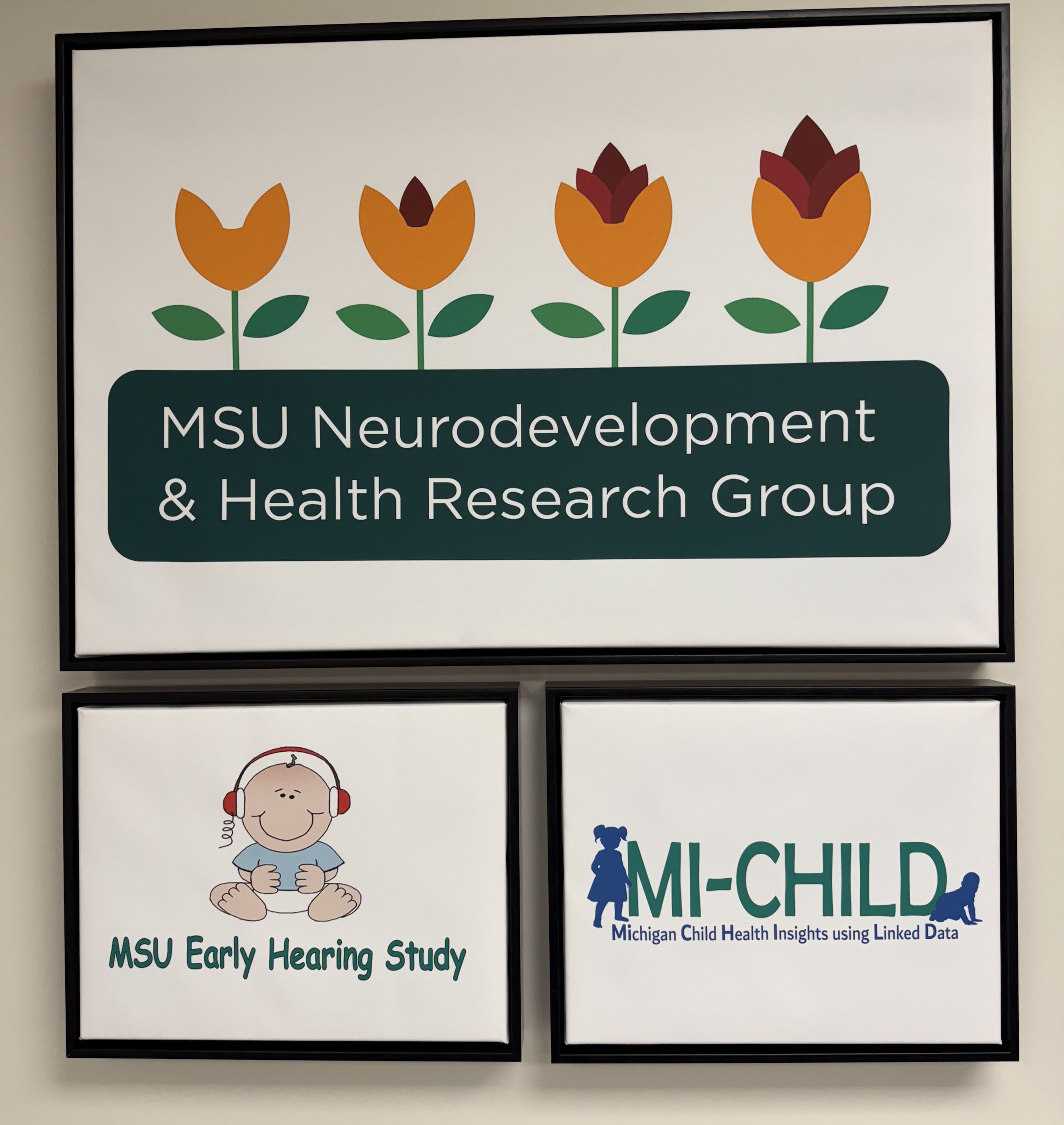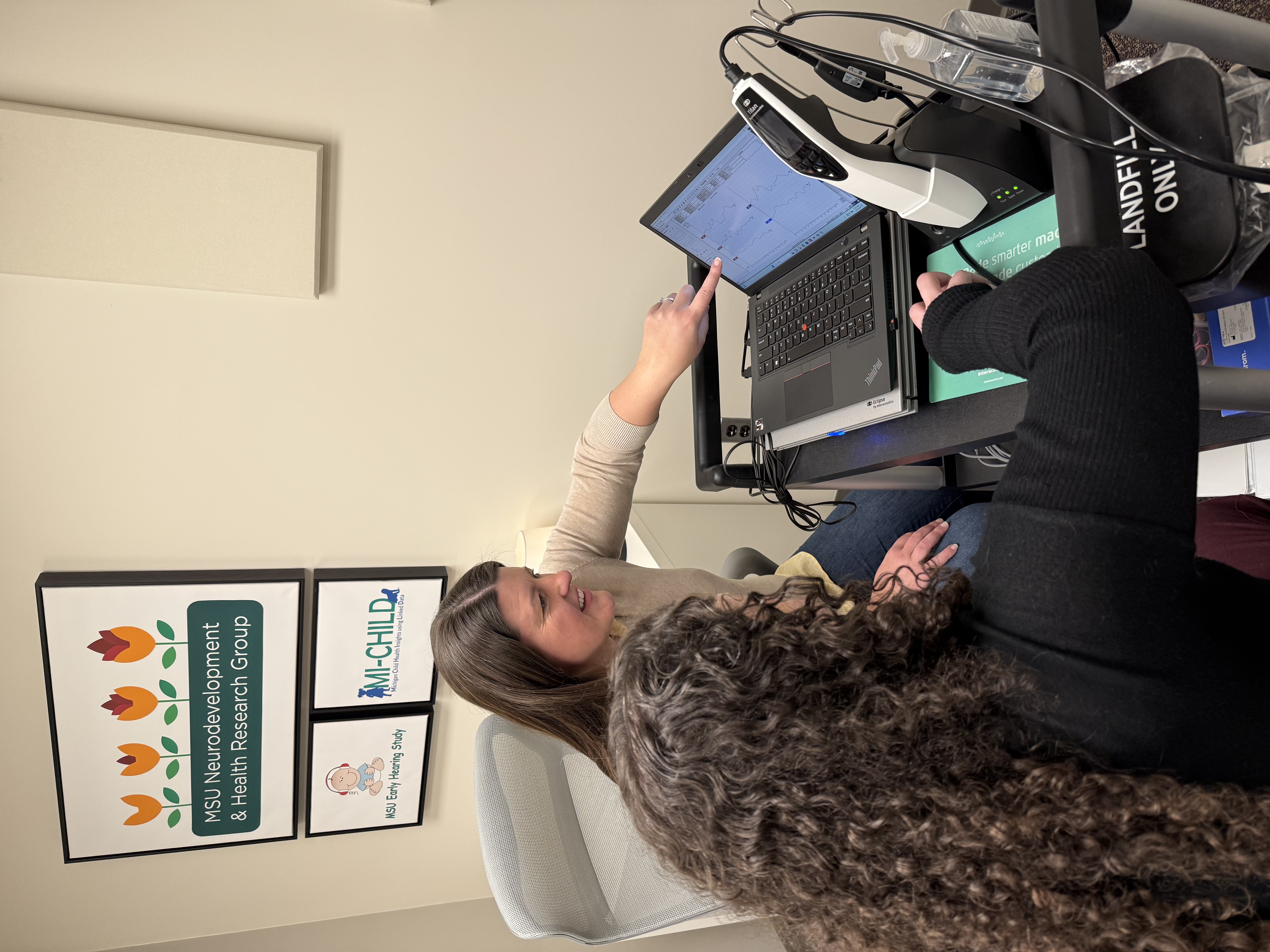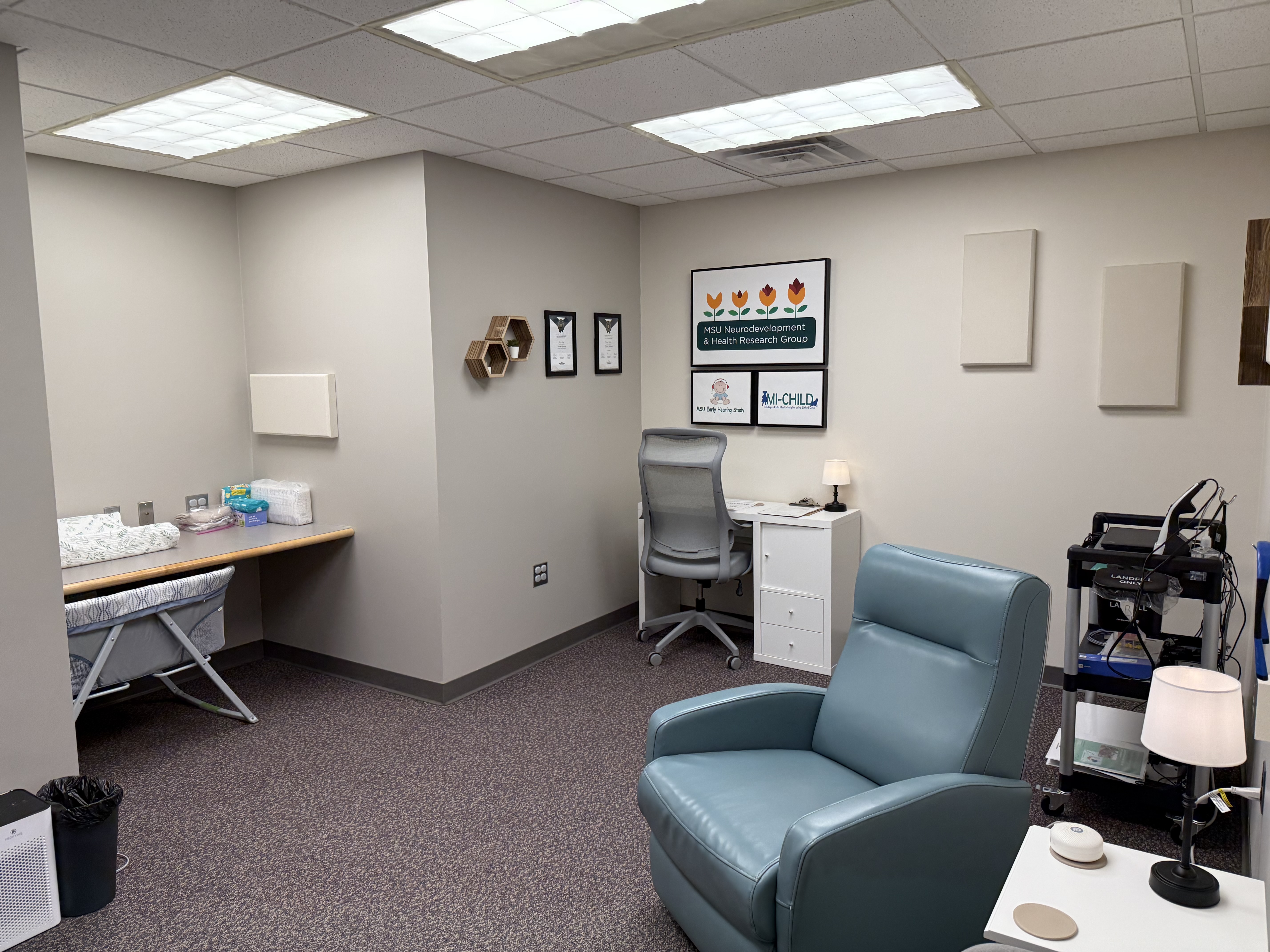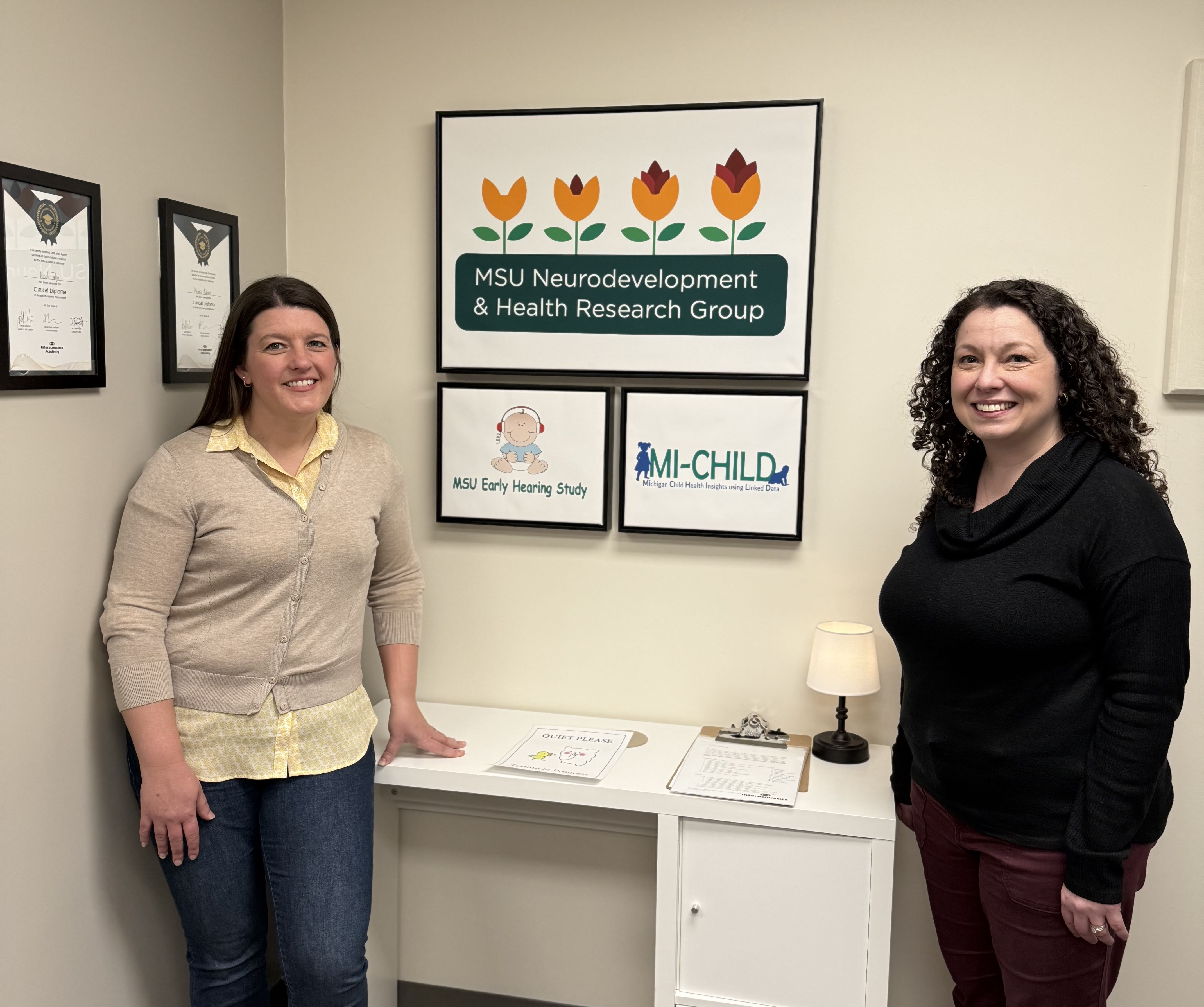What can newborn hearing tell us about neurodevelopment

About the Research
Our research team aims to understand the biological and environmental influences on early neurodevelopment. Some of our projects involve the analysis of data that have already been collected by health administrative entities,. We hope that studies like ours improve understanding of how neurodevelopment unfolds and that this information, in turn, helps us identify children who may benefit from enhanced monitoring by health care professionals as they develop.
Much of our recent work has been funded by the National Institutes of Health (NIH) and focuses on newborn hearing screening. This is because hearing screening often involves assessing newborn brain activity in response to auditory stimulation. We are interested in seeing whether this routine, population-wide assessment contains information that is relevant to challenges children may encounter as they develop.
What inspired you to choose this particular research topic?
 Ultimately, our goal is to apply what we learn to improve the health and well-being of children and their families. Our research questions always begin from this space. The specific topics of our projects, however, are informed by all elements of my training, which include developmental psychology, psychobiology, and perinatal epidemiology. I’m a firm believer that interdisciplinary perspectives can unlock a world of scientific questions that would not otherwise come to mind.
Ultimately, our goal is to apply what we learn to improve the health and well-being of children and their families. Our research questions always begin from this space. The specific topics of our projects, however, are informed by all elements of my training, which include developmental psychology, psychobiology, and perinatal epidemiology. I’m a firm believer that interdisciplinary perspectives can unlock a world of scientific questions that would not otherwise come to mind.
What methods or techniques are you using to conduct your research?
We do our very best to take a comprehensive and rigorous approach to our work. This means using population-wide measures that are collected as part of routine care and complementing this information with smaller, in-depth investigations. We also interface with communities our projects may impact and invite them for their discussion and input. We will launch a bioethics-focused project later this year to continue ascertaining these vital insights.

What are you hoping your research will accomplish?
Our long-term goal is to improve the identification of children who can be supported by timely access to early intervention services. For example, can newborn hearing screening results help pediatricians identify children who may benefit from close monitoring of their milestones over the first few years of life? Ultimately, we aim to address research questions that are grounded in rigorous science but have the potential for tangible, clinical applications.
Are you recruiting? If someone is interested in your research, who should they contact?
Yes, we are actively recruiting! Our current studies focus on very young infants (< 4 weeks of age), so parents who are expecting or who recently welcomed a newborn into their family and live in the mid-Michigan area are encouraged to contact us! We are also recruiting infants who have siblings diagnosed with autism spectrum disorder (ASD) or attention deficit hyperactivity disorder (ADHD).
Interested caregivers can contact Nicole Talge at talgenic@msu.edu of follow our Facebook page (search: MSU Neurodevelopment and Health) for additional information about our group. Community members interested in our research are also welcome to join our listserv where we share updates about our work and future research participation opportunities! I promise – we don’t spam! 😊

Melanie Adkins, MPH, Research Director | Nicole Talge, PhD, Associate Professor

